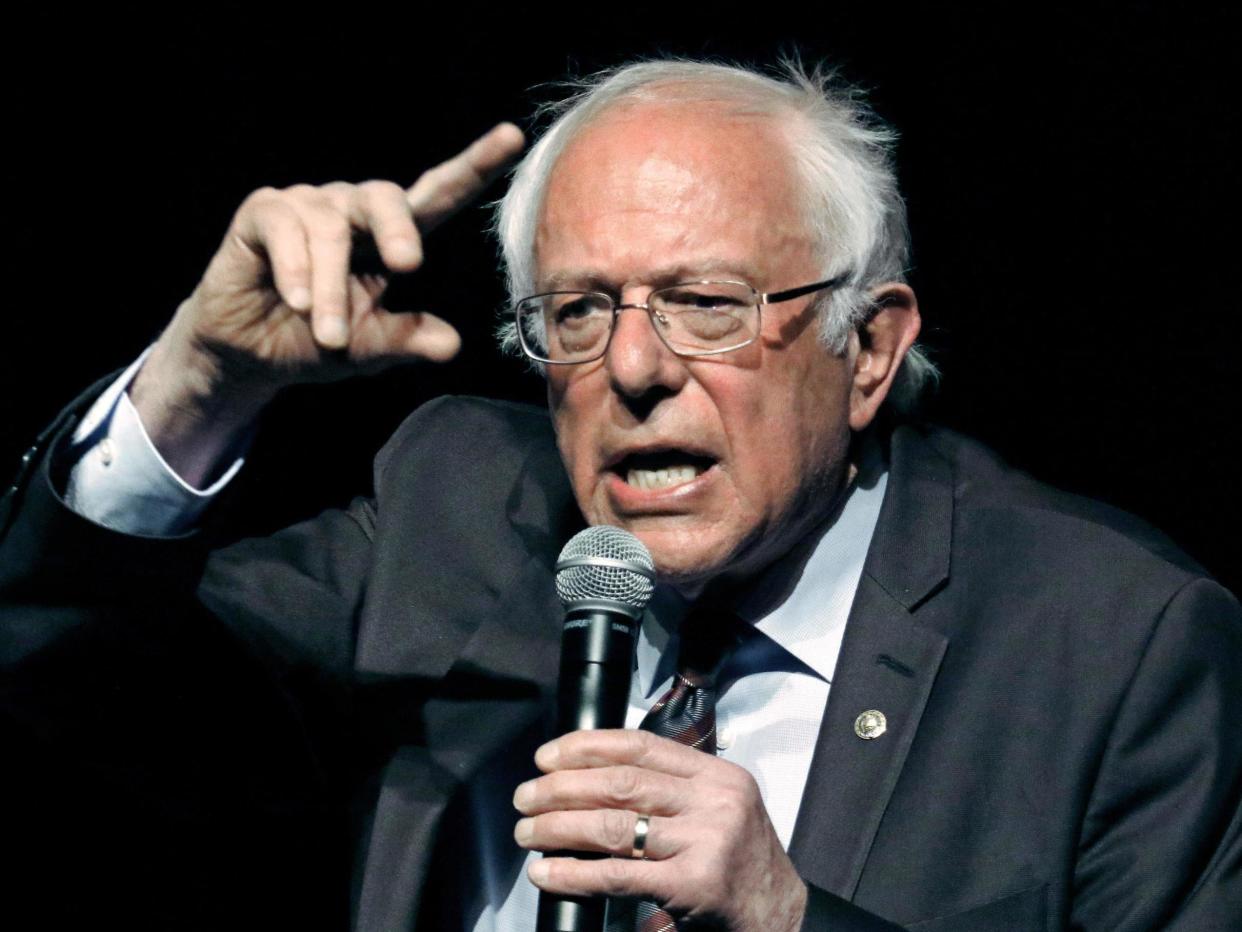Bernie Sanders calls study projecting trillion dollar costs for universal healthcare 'grossly misleading'

Bernie Sanders has responded to a study projecting his "Medicare for All" bill (M4A) will cost $32.6 trillion calling it “grossly misleading” and “biased.”
“This grossly misleading and biased report is the Koch brothers response to the growing support in our country for a ‘Medicare for all’ program,” the veteran Vermont senator said.
The Mercatus Center at George Mason University published the study earlier this week with projections on Mr Sanders’ single-payer health care program that guarantees health care coverage to all Americans.
Its projections suggested that if the plans were enacted in 2018 and implemented between 2022 and 2031, it would cost $32.6 trillion over 10 years.
“Doubling all currently projected federal individual and corporate income tax collections would be insufficient to finance the added federal costs of the plan,” the study read in part.
Mr Sanders’ office has not immediately responded to The Independent’s request for comment on the study’s projections.
Mr Sanders tweeted that the study an attempt to “trash Medicare for All,” while noting the conservative Koch brothers gives funding to the Mercatus Center.
Two of America's richest men, billionaire brothers Charles and David Koch are known for supporting economically conservative causes. They have used their wealth to push for small government and a free economy.
Charles Blahous, the study’s author, insisted it was his own work and denied they had been involved in its creation.
Mr Sanders’ plan would provide coverage for various elements of health care, including preventative to emergency care, mental health and substance abuse services and prescription medications – and all by a federally administered single-player health system. The senator’s plan projects overall US health care savings.
The Mercatus center also projected the plan would garner savings, like from lower prescription costs by $846 billion by 2031. But it forcasted an increase in health care spending in other areas, for instance by, “covering the previously uninsured, by eliminating cost-sharing for those already insured, and by increasing the range of health services covered.”
A Pew Research study published last year found a growing support in Americans, driven by Democrats, for single-payer health coverage.
“If every major country on earth can guarantee health care to all, and achieve better health outcomes, while spending substantially less per capita than we do, it is absurd for anyone to suggest that the United States cannot do the same,” Mr Sanders said.

